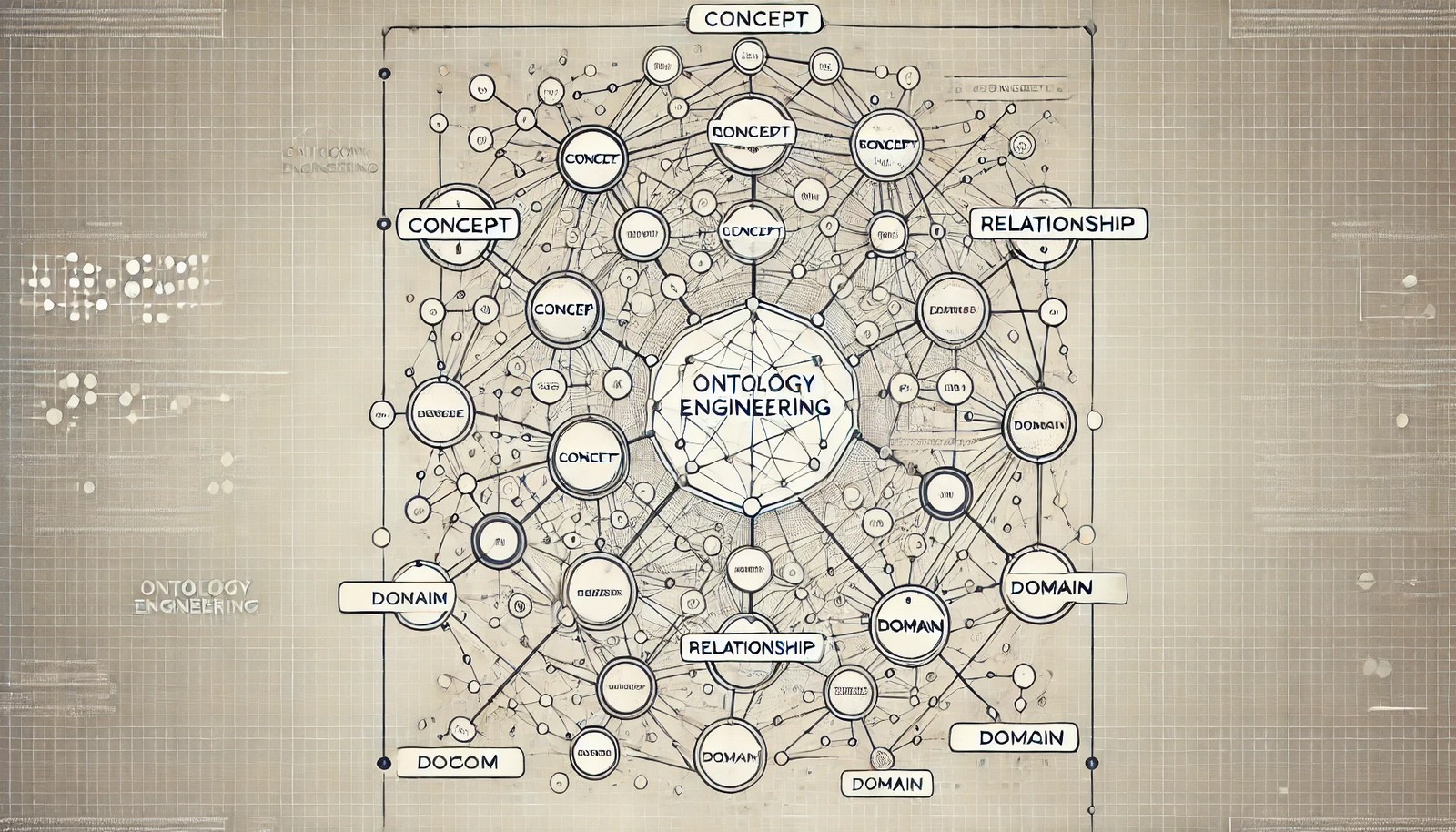Ontology Engineering

Quick Navigation:
- Ontology Engineering Definition
- Ontology Engineering Explained Easy
- Ontology Engineering Origin
- Ontology Engineering Etymology
- Ontology Engineering Usage Trends
- Ontology Engineering Usage
- Ontology Engineering Examples in Context
- Ontology Engineering FAQ
- Ontology Engineering Related Words
Ontology Engineering Definition
Ontology Engineering is the field of artificial intelligence and information science focused on the design and creation of ontologies. An ontology is a structured framework that represents knowledge as a set of concepts within a domain, and the relationships between those concepts. This engineering discipline helps structure data for various applications, including semantic web, information retrieval, and AI-driven knowledge systems. Ontology engineering encompasses ontology design, maintenance, alignment, and quality control, ensuring data consistency and interoperability. It is essential in enabling machines to interpret, organize, and use complex information in a way that mirrors human understanding.
Ontology Engineering Explained Easy
Imagine you have a giant box of Lego pieces of different shapes, colors, and sizes. Ontology engineering is like creating a map of how all those pieces fit together, like building a Lego city where each type of piece has a specific role. It helps computers understand how different pieces of information relate, so they can "think" and make sense of data in a way similar to how we understand it.
Ontology Engineering Origin
Ontology engineering emerged with the need to organize and structure vast amounts of data, especially in fields where knowledge is complex and evolving. Initially developed as a part of information science, it grew in prominence with the rise of AI and the semantic web in the late 20th and early 21st centuries. Pioneers in this field saw the value in creating structured data representations that could help machines comprehend and reason with information as humans do.
Ontology Engineering Etymology
The term ontology originates from the Greek words "onto," meaning "being" or "existence," and "logia," meaning "study of." In philosophy, ontology refers to the study of what exists. In AI and information science, ontology engineering refers to the practice of organizing and structuring knowledge in a way that represents existence or the relationships between concepts within a specific domain.
Ontology Engineering Usage Trends
Ontology engineering has become increasingly important in the fields of AI, data science, and machine learning as more applications require data to be interoperable and easily interpretable by machines. It is particularly prevalent in developing systems that handle large and complex datasets, such as healthcare, e-commerce, and knowledge-based AI. Ontology engineering is also foundational to the semantic web, where structured data is necessary for better search, knowledge management, and automation.
Ontology Engineering Usage
- Formal/Technical Tagging: Knowledge Representation, Semantic Web, AI
- Typical Collocations: ontology development, ontology alignment, semantic interoperability, knowledge-based systems
Ontology Engineering Examples in Context
In healthcare, ontology engineering helps structure medical knowledge, enabling systems to understand patient records and recommend treatments based on existing data structures.
In e-commerce, ontology engineering aids in organizing product information across platforms, ensuring consistent terminology and easier product discovery.
The semantic web relies on ontology engineering to organize web data in a way that is interpretable by machines, facilitating better search results and automated information retrieval.
Ontology Engineering FAQ
- What is ontology engineering?
Ontology engineering is the practice of designing structured frameworks that define relationships between data concepts. - Why is ontology engineering important in AI?
It enables AI systems to understand and use data in ways that mirror human understanding, essential for reasoning and knowledge representation. - How does ontology engineering relate to the semantic web?
Ontology engineering organizes data on the web so machines can interpret and process it, improving search and information retrieval. - What tools are used in ontology engineering?
Common tools include Protégé, OWL, and RDF. - What are common challenges in ontology engineering?
Challenges include maintaining consistency, aligning different ontologies, and ensuring quality over time. - How does ontology engineering affect healthcare?
It structures complex medical data, making it easier for systems to analyze patient data and support decision-making. - Is ontology engineering only for AI applications?
No, it is also used in information science, databases, and any field requiring structured knowledge representation. - What is ontology alignment?
Ontology alignment is the process of matching concepts between different ontologies to ensure interoperability. - How do ontologies improve data interoperability?
Ontologies provide standardized terms and structures, allowing systems to exchange data seamlessly. - Who uses ontology engineering?
It is used by data scientists, AI developers, information scientists, and professionals in fields like healthcare and e-commerce.
Ontology Engineering Related Words
- Categories/Topics: Knowledge Representation, Data Science, Artificial Intelligence
- Word Families: Ontology, Semantic, Alignment, Knowledge Base
Did you know?
The World Wide Web Consortium (W3C) played a pivotal role in promoting ontology engineering with the introduction of standards like RDF and OWL, which were developed to enable the vision of a "semantic web." These standards remain foundational for structuring and sharing knowledge across the web, making information more accessible and useful for both humans and machines.
PicDictionary.com is an online dictionary in pictures. If you have questions or suggestions, please reach out to us on WhatsApp or Twitter.Authors | Arjun Vishnu | @ArjunAndVishnu

I am Vishnu. I like AI, Linux, Single Board Computers, and Cloud Computing. I create the web & video content, and I also write for popular websites.
My younger brother, Arjun handles image & video editing. Together, we run a YouTube Channel that's focused on reviewing gadgets and explaining technology.



Comments powered by CComment